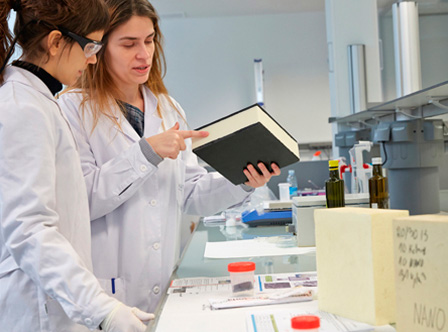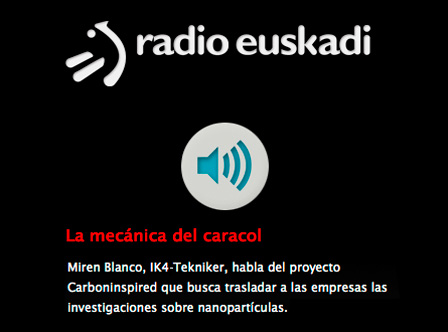NEWS
The second project of the CarbonInspired network “CarbonInspired 2.0” kicks off this year with the results of its predecessor; the aims include transferring them to other industries, involving all types of nanotechnologies and developing new prototypes geared towards other sectors.
To transfer the results of the research into nanoparticles to the automotive industry and construction, the sectors most affected by the crisis in southern Europe. This is the aim of CarbonInspired, a project set up in 2011 that brings together five R&D centres and top universities with the aim of getting nanotechnology out of the laboratory so that is can drive forward the competitiveness of companies.
With 800,000 euros’ worth of funding, partly provided by the European Union, the second Project of the CarbonInspired network, “CarbonInspired 2.0”, has begun its work this year by bringing together the capabilities of a consortium of organisations; alongside IK4-TEKNIKER are the Galician Automotive Technology Centre (CTAG) as the network’s coordinator, the Association for Plastics and Related Materials Research (AIMPLAS), the University of Aveiro (Portugal), and the Aquitaine Education and Research Development Association (ADERA) of France.
The project is gathering together the results of its predecessor so that they can be transferred to other industries and all kinds of nanotechnologies can be included. Interaction within the network will be increased, new prototypes geared towards other sectors will be developed, and training will be intensified through a new e-learning platform that will enable the project to reach all the regions in southwest Europe.
IK4-TEKNIKER will be bringing to the project’s first edition a sandwich panel prototype based on phase change materials and carbon nanotubes designed for use in constructions. When these panels are used in buildings they allow a pleasant temperature to be maintained inside, thus leading to a considerable reduction in heating or air conditioning costs.
This second part will see the development of a prototype to demonstrate the advantages of the use of nanoparticle-based materials for treating industrial waste water. The prototype will allow the technologies that IK4-TEKNIKER has successfully applied in R&D projects to be scaled; they are designed to improve water quality and eliminate its odour.
The results obtained from the first project, which came to an end last year, exceeded expectations: after succeeding in setting up a co-operation network of over 314 participants, contacting over 1,300 enterprises, developing three prototypes for industrial applications and the application for a patent, the industrial interest in nanotechnologies is growing by the day.





